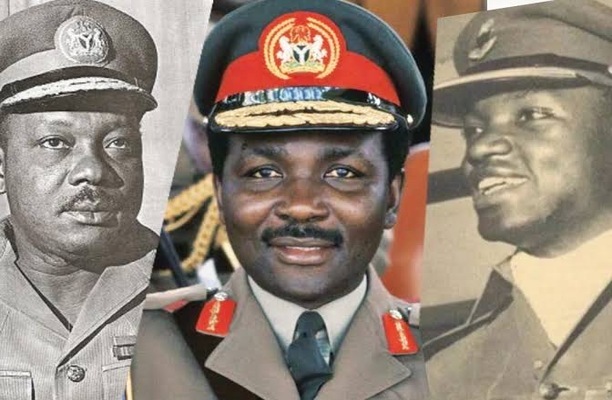January 15, 1966, marked a turning point in Nigerian history when young military officers executed the nation’s first coup. The events of this cold Harmattan morning would put General Aguiyi-Ironsi in power and forever change the country’s trajectory but how did it happen?
Let’s rewind to 1966. Nigeria was just six years into its independence, struggling with the growing pains of a young nation. Political corruption was rampant, regional rivalries intensified, and a group of young military officers had decided they’d seen enough.
The architects of the coup were known as “the Five Majors,” led by the charismatic Major Chukwuma Kaduna Nzeogwu. His co-conspirators included Major Emmanuel Ifeajuna (a former Commonwealth Games gold medalist), Chris Anuforo, Don Okafor, Humphrey Chukwuka, Adewale Ademoyega and Major Timothy Onwuatuegwu.
These weren’t your typical power-hungry soldiers. They were idealists, educated men who quoted philosophers and dreamed of a corruption-free Nigeria. They named their plot “Operation Damisa” (Leopard), and it would prove as swift and deadly as its namesake.
At 2:30 AM, as most Nigerians slept, the coup began. The plotters coordinated simultaneous attacks across the country:
● In Kaduna, Nzeogwu personally led the assault on Sir Ahmadu Bello’s residence
● In Lagos, Prime Minister Balewa was taken from his home in his pajamas
● Other officers targeted key military and political installations
The precision was remarkable, but what happened next would surprise even the plotters themselves.
Here’s where the story takes a fascinating turn. Major General Johnson Aguiyi-Ironsi, the most senior military officer in Nigeria, was actually on the coup plotters’ elimination list. However, through a combination of quick thinking and tactical brilliance, he not only survived but emerged as Nigeria’s new leader.
During the coup, Ironsi moved through Lagos organizing resistance and rallying loyal troops. By morning, he had transformed from a marked target to Nigeria’s new head of state.
Ironsi’s rule lasted just 194 days, but they were days that would shape Nigeria for decades to come. His major decisions included:
1. Abolishing the federal system through Decree No. 34
2. Keeping the coup plotters in detention rather than trying them
3. Appointing military governors for each region
These choices, while logical from a military perspective, would prove politically catastrophic.
The end came for Ironsi in July 1966. While visiting Lieutenant Colonel Adekunle Fajuyi in Ibadan, northern soldiers enacted their revenge. Both men were captured and killed, sparking a chain of events that would eventually lead to the Nigerian Civil War.








